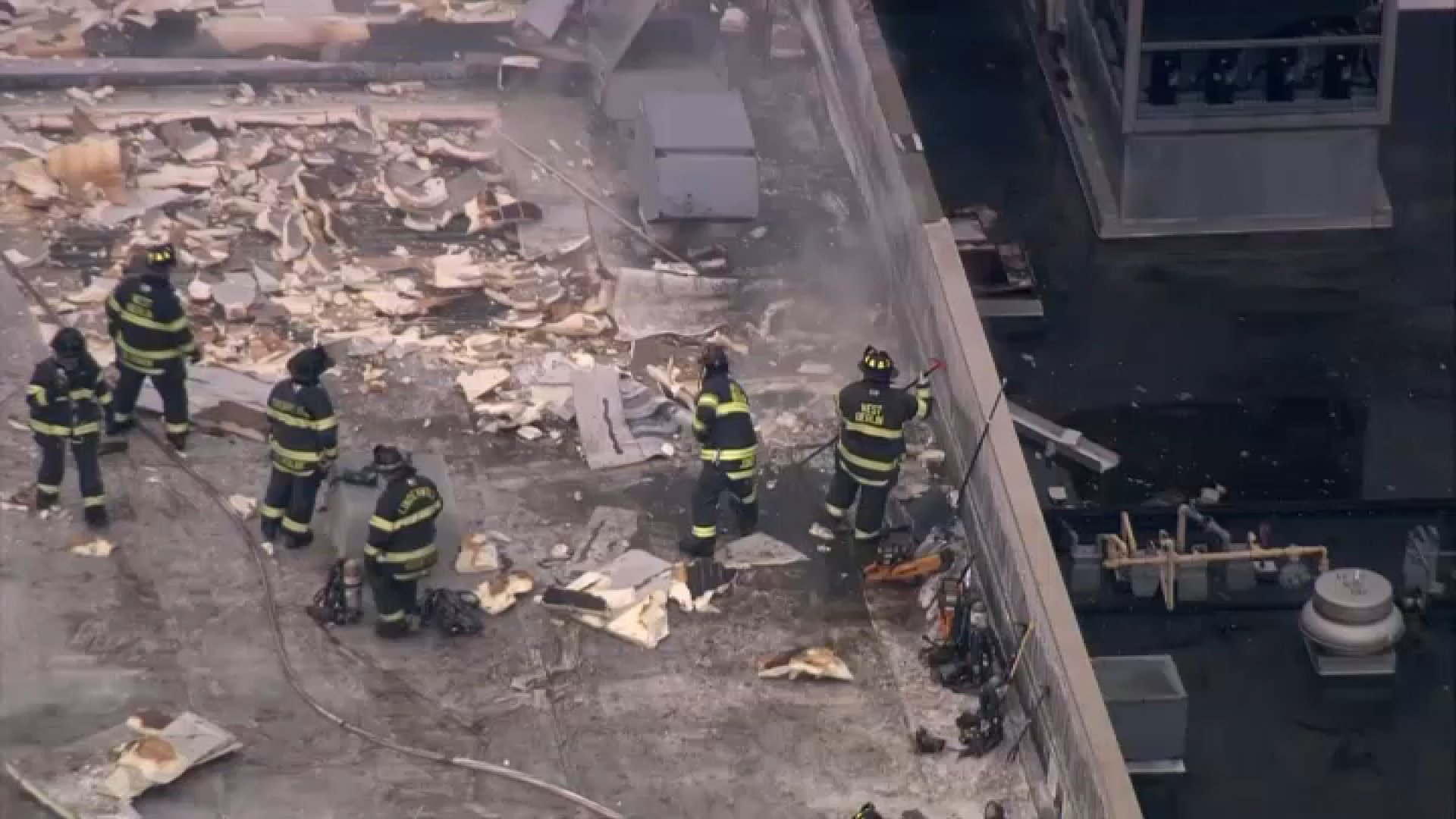What gives the City of Philadelphia the right to take a privately-owned property?
This is the question Meletios Athanasiadis has been struggling to answer since the City informed him that his properties—six parking garages and one home with tenants—would be condemned and taken by eminent domain last December.
“Days before Christmas I received several registered letters informing me that the titles of my properties had been transferred to the City of Philadelphia. Nobody had called me, nobody tried to contact me. They took them, just like that. Months later, I’m still fighting this,” he said.
“I’m 53 years old, I was never in a position where either I cannot call the police or defend what’s mine by myself. I spoke to eight different lawyers; I can’t get justice done. I made a good investment, and the government can come and take it off of me to give it to a developer, why?”
Eminent domain is a law that allows a government to seize private property for public use, with just compensation. The City has since offered Athanasiadis $149,000 for all seven of his properties, but he says it’s not about the money.
“Even if they offer me crazy money, double the money I was going to make developing them myself; if I had a say, I would not sell to them simply because of their actions and the way they went about things,” he said.
Athanasiadis is one 19 property owners whose combined 33 lots were taken by the City of Philadelphia Redevelopment Authority (PRA) for the impending building of a 45-unit residential project—the Tajdeed Residences. The project, funded through a public-private partnership between the City, the Arab-American Community Development Corporation and the Conifer Realty LLC, seeks to revive a cluster of narrow streets that are riddled with vacant lots and dilapidated buildings.
Local
Breaking news and the stories that matter to your neighborhood.
The eminent domain issue set off a heated battle between Kensington community residents and City officials, which continued at a public meeting at the Drueding Center earlier this week.
Over the past few months, residents have become very vocal about their dislike for the project, complaining that the City did a poor job of reaching out to notify residents of the coming development.
Seventh district Councilwoman Maria Quiñones-Sánchez, who has taken the brunt of residents' complaints -- including a marching protest outside of her home -- said the purpose of this week’s meeting was to discuss the community’s concerns and to make sure the property owners were aware of their rights.
“We’ve been trying to address what people have brought to us, their concerns, and do better due diligence with the community in terms of informing them of the facts. But even with the facts, some people are still gonna disagree,” Quiñones-Sánchez said.
When anger among residents escalated at the meeting, Quiñones-Sánchez admitted fault on behalf of the City for not doing more, early in the process to communicate with and include people in the neighborhood.
“Our communication was not the best and that’s why we’ve hired a community outreach coordinator. We will do our best to be more deliberate moving forward,” she said.
Vice President of Conifer Realty Charles Lewis said that while his company may have faulted in general outreach, it did provide notice as required by law.
“You can argue whether or not they got enough notice but by the law, they got enough. We did a community meeting last summer, and I think for whatever reason we didn’t do the proper outreach and that’s why they think maybe we could’ve done better with notice and outreach. That’s why we’re doing the outreach now,” Lewis said.
One big complaint among the property owners is that Pennsylvania’s eminent domain law only gives a person 30 days to contest a seizure. Many argued that they would have filed to contest the City if they had known their rights early-on. The deadline to contest these seizures expired on Jan. 18, leaving property owners only one other legal option: negotiating just compensation with the City.
David Snyder, an attorney with Fox Rothschild LLC whose focus is on condemnation and eminent domain litigation said the entire process can be both challenging and emotional for property owners in cases like these.
“The problem you run into is if you’re not prepared when the declaration of taking is filed, 30 days is not a lot of time. You have to find a lawyer; you may not know anything about the project, so if you’re going to challenge it you have to learn about it to see whether it’s defective or not for eminent domain purposes. It’s a really tough thing for a property owner who has never been through the process to make a determination within 30 days of whether or not they want to challenge a taking,” Snyder said.
“Whether it’s a home or a business, property rights are really important to our culture and it can be a very emotional thing for someone to go through when someone tells them that they have to give up their property.”
Emotions aside, the situation largely comes down to the law.
Two of the main requirements for taking a property under eminent domain are proving that the area being taken is “blighted” and that the area will be taken for “public use,” both terms that are somewhat vague in definition. Pennsylvania’s eminent domain law recently got overhauled largely due to the outcome of a 2005 Supreme Court case Kelo versus City of New London in which Supreme Court held that private redevelopments could be permissible “public use” under the Fifth Amendment. This led a number of states to modify its legislation to include more specific definitions of blight and public use.
According to Snyder, the amendment to the eminent domain code in Pennsylvania made it much more restrictive. Philadelphia, however, was grandfathered or temporarily exempted from the new legislation, through Dec. 31, 2012.
The PRA confirmed that the City used eminent domain for the taking of approximately 1,200 properties last year. This is compared to less than 100 properties taken in 2011. The PRA stressed that the difference in the number of properties taken year-over-year varies based on a number of variables but Snyder indicated the change in the amount of properties taken may have been due to the new law change.
“The city of Philadelphia had a rush at the end of 2012 to make sure they got all of their blight eminent domain cases filed so that they wouldn’t fall within the new, somewhat more restrictive criteria or requirements for establishing blight,” Snyder said. “It’s not a shady practice; it’s what the law permitted.”
So what happens now?
Only two property owners were able to file preliminary objections to contest the taking of their properties within the 30-day time limit. These two disputes could defer the project if the complaints were decided in the property owners’ favor but Snyder says, historically, that is very unlikely.
Based on appraisals and fair market value, the City has issued compensation offers to all of the property owners though some of the owners, including Athanasiadis have complained that the amounts offered are not fair.
Pennsylvania’s eminent domain law covers up to $4,000 in costs for property owners to obtain supplemental appraisals or legal assistance and several owners have begun the process of contesting the compensation offers. According to Snyder, compensation negotiations can be lengthy and could continue for years but ultimately would not hinder the project from being built.
Executive Director of the Arab-American CDC Marwan Kriedie says he’s confident that the project will move forward and that it will be good for the community.
“Look, the project is gonna happen, I think the important thing now is to make sure that everybody knows what rights they have and they basically have to go and negotiate with the City. We want to make sure everyone is happy and gets a fair amount,” he said. “We’re convinced this is gonna be a great project, it’s a community project and we’re all excited about it.”
In response to Athanasiadis’s complaints, the City says it is now doing a re-appraisal of his properties. Athanasiadis says he’s still unwilling to negotiate.
Kreidie hopes to break ground on the Tajdeed Residences this fall.



